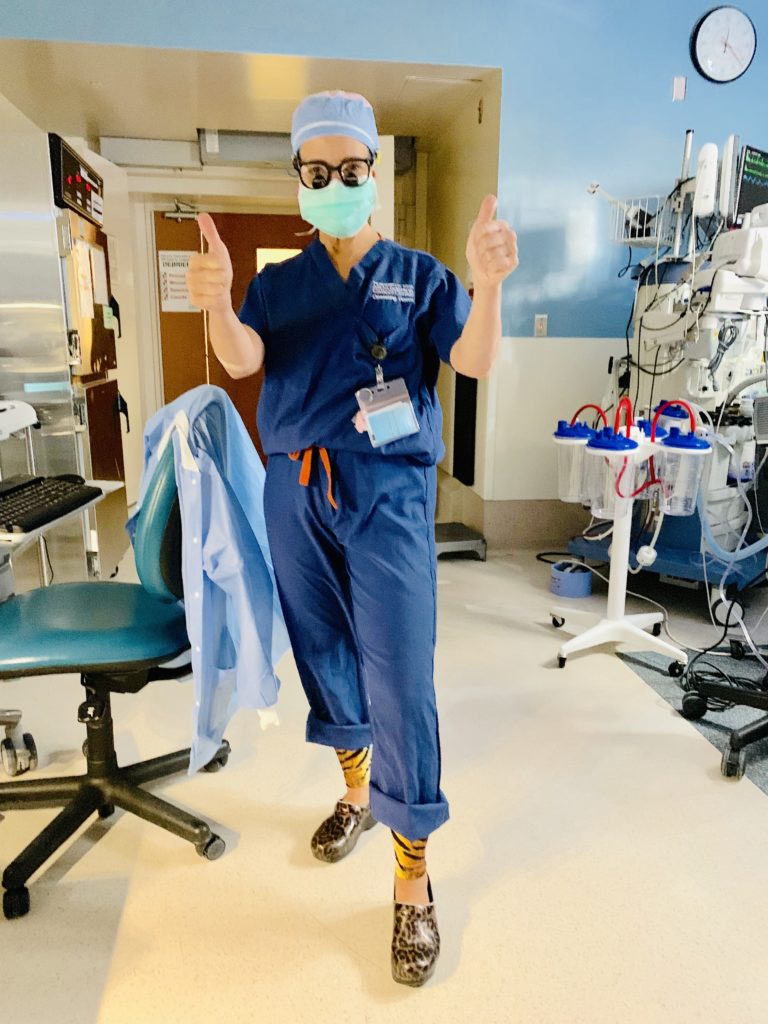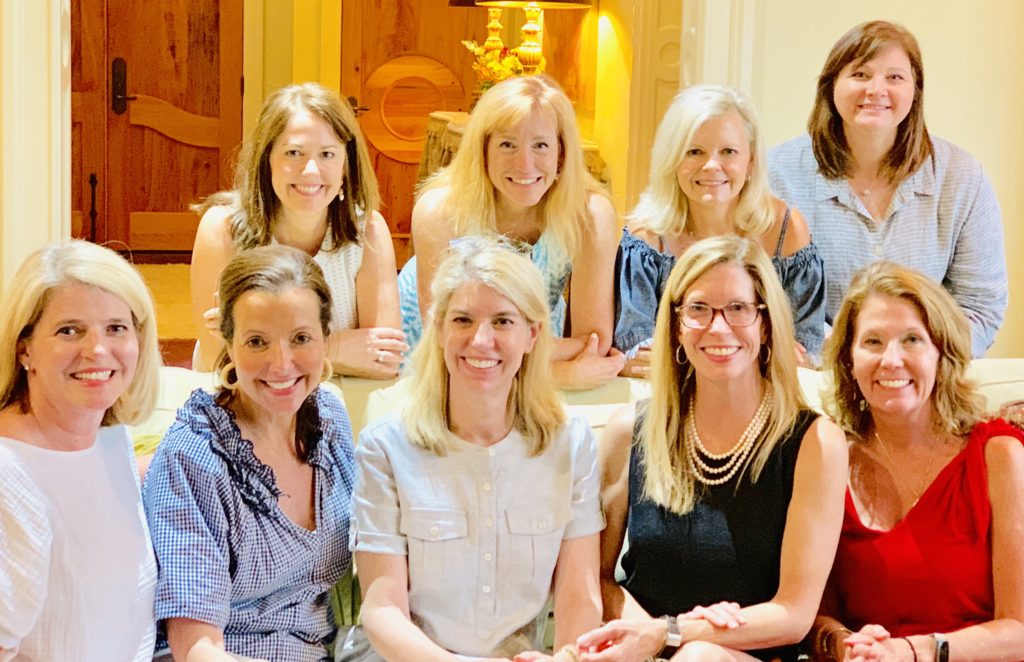Nancy Perrier, MD, FACS is a Surgical Oncologist and tenured and endowed Professor in the Department of Surgical Oncology at MD Anderson Cancer Center. She’s a Phi Gamma/LSU initiate and was Recruitment Chair while in the chapter. Her ability to connect with patients, peers, and Sisters has propelled her in her career, as she continues to serve others with “high purpose and helpfulness.”
She currently serves as a Director on the American Board of Surgery which provides oversight of more than 30,000 surgeons with regard to training, certification, and professionalism policies governing surgery in the United States. Regarded as an expert, Dr. Perrier serves in multiple capacities at MD Anderson including Director of Value for the Division of Surgery, section chief, and medical director.
Nationally, her influence extends across multiple societies and organizations including senior authorship of guidelines for care and lead editing of the American Joint Commission on Cancer 8th Edition Manual for the staging of cancers. MD Anderson Cancer Center describes her as, “highly regarded for her clinical excellence, integrity, initiative, effectiveness, and as a consummate leader for her peers.”

She completed her surgical training at Mayo Clinic in Rochester, Minnesota, and fellowship training in both Endocrine Surgical Oncology and Outcomes-Based Research in Epidemiology and Biostatistics at the University of California, San Francisco. She was a National Institute of Health-funded T32 research fellow, graduate of the Jesse H. Jones Graduate School of Business at Rice University, with a certificate in Health Care Management, and has had a career interest in endocrine neoplasms.
Her scholarly works, of more than 350 publications and 42 book chapters, range from the safe implementation of new medical technology to value-based cost of care.
Chatting with Dr. Perrier
We caught up with this highly acclaimed Sister to see how Chi Omega has impacted her journey in the medical world and what advice she’d pass on to collegiate Chi Omegas…
How did Chi Omega impact your collegiate experience?
Chi Omega embodied the principle to be discouraged never, put character before appearance and to be democratic rather than exclusive. As my wisdom matures, I remain close to the women who also made the choice to strive to live up to a set of sound principles. That common decision to have these standards formed relationships that are built on a solid foundation surpassing the test of time. I learned that by surrounding oneself with an inner circle of people who share common values, we can multiply and create momentum to be our collective best selves. In times of difficulty, good relationships are a shelter. In times of opportunity, they are a launching pad.

I learned what it meant to trust. Trust is required for people to feel safe enough to create, share, question, attempt, and risk. Without trust, leadership is weak and teamwork is impossible. My friendships support me and give me strength, confidence, and wisdom. Together we learned to help others, listen to our hearts, and take risks carefully. These timeless friendships taught me how to identify true, deep, rewarding, special relationships that enrich my life and are returned over and over with goodwill – never taking unfair advantage of the privilege of each other. We make mistakes along the way, but we place them under our feet and use them as stepping stones to rise above.
You were the 1988 Recruitment Chair for Phi Gamma Chapter. What do you remember about this experience and how did it influence your leadership style?
I learned leadership is action, not position. I think the secret to being a successful leader is encouragement. It’s about letting a vision make a difference to lift you and those around you. It requires learning who they are, finding out what they need and then helping them and the team to win… I learned that influencing others was all about relationships and relationships are the key to success… I learned the importance of having a personal touch to listen, learn, then lead to reach productive results.

Dr. Nancy Perrier with pledge Sister Kelly Bingel at a world series baseball game 
Dr. Nancy Perrier with pledge Sister Kelly Bingel at a world series baseball game
I recognized that as a good leader you can never take people out of the equation in anything that you do. I continuously draw on that experience of being the face, heart, and hands of the day to day activity. The importance of connecting and caring makes a huge difference. This experience was literal in recruitment because I led by example. The same is true today. I go back to this principle: to make things happen, create momentum and develop an environment for success which makes the team better and stronger. I find that it is boundless and contagious because showing the way to productivity attracts highly productive people.
How did you know you wanted to enter the medical field?
I grew up in a small but strong medical community. Early on, I realized the importance of healing. I consider what I do a calling because my faith gives me strength and sustains me. I am not afraid of problems and the reward of helping others was easily recognized early on in my life. I have always looked at every situation, wanting to make it better. The practice of medicine means sacrifice and being part of something greater than myself. Being able to bring a cure or comfort in times of distress guides my value system of high purpose and helpfulness. To me, it is the most authentic and noble of all possibilities.
You’ve been referred to as a “consummate leader for your peers in the medical world.” How do you practice leadership centered in effectiveness and integrity?
An invitation to lead people is an invitation to make a difference. Good leadership changes individual lives, forms teams, builds organizations, and impacts communities. Great leadership has the potential to impact the world. I strive to never forget that a leadership position is only the starting point. It can never be about a title. If the work is significant and adds value to people then it doesn’t need to come with a title. For me, the work itself and the positive impact on others is the reward. Being a leader is knowing yourself and defining your values. I value honesty, vision, self-awareness, courage, open communication and working with others for a higher purpose. This requires getting out of my comfort zone and being better today than I was yesterday.

I have the perspective that a leader’s job is not to know everything but to attract people who know things that I do not. It is about harnessing the power of shared thinking. I have learned that it means putting others ahead of you and being willing to go only as fast as the people you lead. This did not come naturally because I have a tendency to move quickly. I have learned to think big, start small, then move fast. I learned successful leadership is all about others; leading with others, not just leading others. It is being relational and productive while moving forward to achieve a goal. It is a journey. I know leadership is a privilege. Being a surgeon is a privilege. The cost of leadership is carrying the responsibility of the team’s success on your shoulders. By helping others, it is impossible to not also help yourself.
What advice would you give to your Chi Omega Sisters that may be pursuing a career in the medical field?
If you reveal within yourself the desire to work with your head, heart, and hands, make a good living doing something that helps others. Do not be held back. Excel in it and never let your talent be wasted, watered down by mediocrity or used to glorify anything other than a higher calling. The privilege of having a vocation that finds favor with others and is well received and respected is awesome – in every sense of the word.

If you are called forward with a gift or talent that has been placed in you and has full potential to glorify goodness, use it and do it. Being a great physician is being a leader, a true servant leader of the most important team – the human team. Your energy will flow where your intention goes, and you need to realize that this is about enjoying the journey. Recognize the need to establish yourself, realize the importance of gaining permission from those around you, be productive and possess a desire to take your team – your patient, clinical team, operating room team or research team – to a higher level. Have a sense of vision for your leadership and be aware that as you go through stages of self-development, that vision must align with those you serve. Being a part of a team of people doing something of high value is one of the most rewarding experiences in life.
